- Home
- Sharon Sala
Dark Water Page 21
Dark Water Read online
Page 21
“And why were you here?” the Mountie asked Maury again, and again Maury took out his Private Investigator License and started explaining about the discovery of Franklin Whitman’s body in Flagstaff Lake and the FBI who’d come to Marmet, as well as the attempt that had been made on Sarah Whitman’s life.
“And you are working for Miss Whitman?” the Mountie asked.
“In a roundabout way,” Maury said. “I was hired by her friend, but on her behalf.”
“I see. And what was it you were trying to accomplish here…? Link some notation on a desk calendar to Moose Landing?”
“I don’t know that this ‘moose’ was the one mentioned, but I’ve been checking out every business, old and new, with ‘moose’ as part of the name.”
“Who else knew you were doing this?”
Maury sighed. “About half of Marmet, maybe more.”
“That isn’t going to be of much help,” the Mountie said.
“Tell me ’bout it,” Maury muttered, then looked up as someone in a blue minivan pulled up at the scene.
“That would be Mr. Havenworth’s daughter, Claudia. Please excuse me a moment. There are a few more questions I’d like to ask before you leave.”
Maury nodded, in no hurry to leave, because then he would have to face the fact that his leads had come to a dead end.
He watched the woman receiving the news of her father’s demise and regretted her sorrow as she covered her face and cried. A few moments later she was led into the building to identify the body, then back out again. She was pale and shaking as she stumbled to the side of the building and threw up.
Maury waited until she was a bit more herself then went to his car, took a flask of whiskey from the glove box and headed to the old picnic table where she was sitting. He thrust it in her face without introduction.
“Have a swig,” he said gruffly. “It’ll help.”
To his surprise, she took the flask, and a drink, without even bothering to see who had offered it. Not until she handed it back did she look up.
“Who are you?” she asked.
Maury sat down beside her. “I’m the man who found the body,” he said. “He was your father?”
She nodded, her face still blotchy and swollen from crying.
Maury noted absently that she was one of those women who didn’t cry pretty. Some did. Some didn’t. She was one of the latter.
“Real sorry for your loss,” he added.
“I have to say, I’m not all that surprised that it happened, although we expected it years ago, while the Landing was in full swing. Not now. It’s been over for years.”
It was the last thing Maury had expected her to say. “Why do you say that?” he asked.
She shrugged. “In the old days, the Landing was a hangout for people having affairs and the place where the local hookers took their men. You know. The family tried to get Dad to give it up more than once, but he liked the drama of it all, I think.”
Maury nodded. “Yeah, it can get that way for a fella. Sort of like an addiction, I guess.”
She looked at Maury more closely. “You’re not a cop, are you?”
“Private investigator.”
“Why did you come here? Did you get lost?”
“No. I was looking for this place, only I got here a little too late.”
“Why on earth would anyone want to look here? There’s nothing left.”
“Maybe memories…I wanted to ask your father some questions…see if he remembered the people who came here.”
She rolled her eyes. “Oh, he would have remembered, all right. He still talked about the regulars. I used to clean the rooms out here and—”
Maury grabbed her by the arm. “You worked here?”
She shrugged out of his grasp to blow her nose, then nodded.
“For more than ten years. My ex-husband left me with two babies to raise. I had no skills, and Dad let me set my own hours.”
“If I showed you some pictures, do you think you might recognize the faces?”
She shrugged. “Maybe.”
“I’ll be right back.”
A few minutes later, Maury had the few pictures Sarah Whitman had given him spread out on the tabletop.
“Ever hear the name Franklin Whitman?” he asked.
Her mouth dropped. “Isn’t that the name of the guy they fished out of Flagstaff Lake the other day?”
“Yes, but did you know him before?”
She frowned, then shook her head. “It doesn’t ring any bells, other than what I just said.”
Maury pointed to the pictures. The first one was the one from Whitman’s desk. It was of him, his wife Catherine, and Sarah as a child, wearing their Christmas outfits. The other was the group picture of the bank’s employees, taken for the celebration of the seventy-fifth anniversary.
He slid the family picture toward her.
“Recognize anyone in this picture?”
She stared, finally shaking her head. “Nice family, though.”
Damn. Another dead end. He pushed the bank picture toward her.
“This is another picture of the same man. Here he’s not smiling. Maybe he looks different to you.”
“Where is he?” she asked.
Maury pointed.
She leaned closer, peering intently at the face he indicated, then let her gaze slide to the others beside him. Suddenly she pointed.
“I recognize him!” she cried. “A regular. Used to see his car every couple of weeks.”
Maury picked up the picture, checking the names on the back against the faces, then frowned, trying to fit the pieces of this ever-widening puzzle together.
“I recognize her, too,” she said, tapping the glass on the front of the frame.
Maury turned the picture around.
“They were quite a couple in those days,” Claudia said.
“They came together?” Maury asked.
“No, in separate cars. And the reason I remember is they always came in the daytime, when I was at work. Not at night, like most of the others.”
“What time of day?” Maury asked.
“I’m not sure. It was so long ago. But it would have to be after ten and before three, because that’s when I left work. I had to get home before my kids got out of school, you see.”
“Well, I’ll be damned,” Maury said, and then looked up at the woman. “You know…you might have just pointed out your father’s killer.”
She gasped.
“You don’t mean it?”
“We’ll see,” he said softly. “We’ll definitely see.” Then he stood abruptly. “Ma’am, it’s been real nice knowing you. I’m sorry your father is dead.”
He raced to the car and pulled out his notes, comparing them against the identifications that had just been made.
Larry Romfield, casually known as Sonny, father of two children, husband to Eloise, had died two days after the robbery.
Moira Blake, retired a couple of years ago after a lifetime of devotion to the bank. Husband was paralyzed from the waist down after a hunting accident. Died six years ago after more than twenty-five years in a wheelchair.
So Sonny and Moira were having a white-hot affair. How did that link them to what had happened to Whitman?
Sonny was dead. Moira stayed on at the bank and lived quietly in the same house she was married in. No outward show of money or instant wealth. No sudden accumulation of things out of their financial realm. So why did Franklin Whitman’s calendar have their assignations on it?
And then something occurred to him. What if it wasn’t Whitman’s calendar? Hadn’t Sarah Whitman said something about an old man named Harmon Weatherly clearing out both desks at the same time? What if he’d mixed up the calendars by mistake? On the surface, it wouldn’t have mattered. But then Whitman’s body was discovered, and his only surviving relative had to come back to claim it. The case was automatically reopened by the local police, and since Whitman obviously hadn’t run off with the money aft
er all, the Feds were back in the area, looking for the thief.
And then out comes Harmon Weatherly with a box of Whitman’s belongings, gives them to Sarah, and the shit hits the fan. Somehow the killer discovered that the calendars had been mixed up and knew that if someone started questioning the notations, the years of freedom were over.
And since Sonny Romfield had been dead and buried all these long years ago, there was only one person who had any stake in making sure the truth never came to light.
His lover. Moira Blake.
Maury didn’t know how they’d done it, or how Whitman had come to die, but he would bet his sorry ass that he’d just solved a bank robbery and a twenty-year-old homicide. He grinned to himself. Damn, he was good. He was going to have to up his going rate.
He bolted out of the car and headed back to the lodge and the Mounties. They had a stake in what he’d just found out—as much, if not more, than Sarah. Unlike this poor old man, she, at least, was still alive.
Once he’d given them the information, he raced to his car and peeled out of the driveway, leaving the Landing and all its secrets in the dust. He dialed Tony’s number as he drove, then cursed beneath his breath as the screen light indicated a failing battery. He tossed the phone in the seat beside him and pressed on the accelerator. It was less than an hour to DeMarco’s house. He could tell him face-to-face.
“They’ve arrested Charles Bartlett!” Sarah cried, as Tony walked back into the house.
“What?”
“It’s Ron Gallagher,” she said, her voice shaking with relief. “He’ll tell you himself.”
Tony took the phone from Sarah, then pulled her close, hugging her as he spoke.
“Ron? Is this true?”
Gallagher was all but laughing. The relief of catching the man was like a chemical high.
“We got an anonymous tip last night. I got a search warrant early this morning, and we went to the Bartlett house. I showed him the warrant, and he looked surprised but agreeable. I asked if he owned any hunting rifles. He said yes. When we asked to see them, he handed them over, cool as can be. One had been shot very recently and hadn’t been cleaned. I asked if he’d been hunting. He vehemently denied it, but we took the guns in for testing and him in for questioning. Tests came back that the gun was a match for the shell and slug we took out of your house. We arrested him on the spot.”
“Are you saying he’s also the one who robbed the bank and killed Frank Whitman?”
“The Feds are happy with the case. So am I. Why else would he want Sarah dead?” Ron asked. “If he’d managed to shut her up soon enough, the investigation would probably have died of its own accord for lack of evidence. It was her constant presence in Marmet that kept everything stirred up.”
“I can’t believe it,” Tony said. “He’s just a few years older than me. Maybe four, at the most. He pulled off a million-dollar bank robbery, framed Franklin Whitman and married the richest girl in town—and no one ever suspected him?”
“Seems like it,” Gallagher said.
“I guess,” Tony said. “Well, thanks for calling.”
He hung up the phone, turned and gave Sarah a huge hug.
“It’s over!” Sarah cried. “Thank God, it’s over.”
Tony smiled and rejoiced along with her, but all the time he kept thinking that something wasn’t right. He’d known Charlie Bartlett his whole life, and even in his worst days running with the gangs, he just hadn’t seemed smart enough to pull all that off, especially alone.
“The guards can go home. Everyone can go home,” Sarah said.
“Even you?”
The tension in his voice tempered her elation.
“I didn’t mean that the way it came out,” she said. “I’m not trying to get away from you.”
He smiled but didn’t comment. The pain of separation was already becoming a reality, and he didn’t like the way it felt.
“I guess I’d better alert my security team to pack up,” he said.
“Dunn and Farley are already packing,” she said. “They were with me when I got the news.”
“Fat lot of good they were,” he said.
“It wasn’t their fault they were drugged. There are women getting drugged all the time, only they usually wind up being raped, as well, and never remember a thing about where they were or who did it.”
He grimaced. “I know. I know. So I owe them an apology.”
Sarah smiled. “One of the things I like best about you is your sense of fair play.” Then she added, “Except in the bedroom. You don’t play fair there at all.”
Tony nuzzled the side of her neck. “That’s because making love isn’t play, Sarah Jane. It’s serious business.”
“Right. What was I thinking?” she said, and then sighed as he continued to trace the length of her neck with his lips.
Tony kissed her, making her head reel and her heart break rhythm.
“Hold that thought. I’ve got to talk to the men.”
Sarah was still smiling as her aunt entered the room.
“What is all the fuss?” Lorett asked.
“It’s over, Aunt Lorett! It’s over! They arrested the man who tried to kill me. Now Daddy can rest in peace.”
Lorett stood quietly, studying Sarah and then the surrounding rooms.
“It doesn’t feel over,” she said.
Sarah groaned and threw herself into Lorett’s arms.
“Don’t, Aunt Lorett. Don’t start second-guessing this now. Be happy for me. Be happy the criminal is behind bars.”
The expression on Lorett’s face softened. “Of course I am happy for you, child.” She hugged Sarah fiercely, as if she was reluctant to let her go. But Sarah spun out of her arms and began pacing the floor, counting off the things to be done.
“I don’t know what to do next,” Sarah said. “Oh. Yes, I do. I already made the funeral arrangements for Daddy to be buried beside Mother. That has to come first.”
“I will leave tomorrow,” Lorett said. “You do not need me to do these things.”
Sarah’s elation slipped, but only for a moment. “Yes, of course. I just thought—”
Lorett put a hand on either side of Sarah’s face and then held her until Sarah stopped talking and looked—really looked—into her eyes.
“You have some hard decisions to make now, and you must make them as your own woman. You do not need me or anyone else’s persuasive presence. What you do must come from your own heart.”
Sarah blinked rapidly, overcome by a quick set of tears she wouldn’t let fall.
“I’ll be fine, Aunt Lorett. Never worry about me.”
Lorett shook her head, then bent down and kissed Sarah’s forehead as she’d done so many times in Sarah’s youth.
“Do not be simple, child. Of course I will worry. It is a parent’s prerogative.”
Sarah threw her arms around Lorett’s neck. “I may not have said it often enough, but I love you very much. You are the best parent I could ever have had. I thank my mother every day of my life for her foresight in making sure my care was left in your hands.”
Lorett frowned, then tugged gently at Sarah’s hair. “You need a cut. Want me to get the scissors?”
“No.”
They looked at each other and burst out laughing.
The only time Lorett had ever tried to cut Sarah’s hair, it had been a disaster.
“We will talk later,” Lorett said. “I will call the airport now and schedule my flight.”
Sarah nodded reluctantly, then allowed them both some dignity by leaving the room before either one of them started to cry.
Sarah was torn between going back to New Orleans and not wanting to leave Tony. Even then, nothing was certain. Tony had hinted more than once at wanting her, at loving her, but there had been no formal declaration of love or commitment, let alone marriage.
Sarah glanced out the library windows. Tony was in deep discussion with the head of his security team. A little at loose ends, but
elated that she was no longer under guard, she meandered through the house, imprinting each of the rooms in her mind for the time when she would no longer be here.
Lorett was still on the phone in the living room as she passed by. Dunn and Farley were coming down the hall with their suitcases in their hands.
“Guys, thank you.”
They nodded soberly as she shook their hands.
“Are you leaving now?” she asked.
“Yes, ma’am,” they echoed.
“Safe trip…wherever you’re going,” she said. “Oh…when you see Tony outside, tell him I walked down to the dock.”
“Yes, ma’am,” they said in unison again.
She smiled to herself as she exited the kitchen, then stopped on the deck, fingering the hole in the wall where they’d dug out the slug that had nearly killed her.
“But it didn’t,” she said, and turned toward the lake.
The view from the deck was magnificent and the clear, sunny day, although cool, was a perfect backdrop for the calm, shining waters. If Sarah squinted just right, she could almost convince herself that the lake was exactly what it had been built to be—the power source for a hydroelectric plant, as well as a place meant for relaxation and fun.
On an impulse, she started toward the dock. She wanted to see the water up close, to find a way to make peace with the dark, murky depths. The last thing she needed was another level of fear. Still locked into “go nowhere without me” mode, she started to go back into the house and wait for Tony to come with her, then scoffed at herself and took the steps off the deck. Charles Bartlett was in jail. There was no one left who could hurt her.
The sunlight was warm upon her face. Her red flat-knit turtleneck molded itself to her body as she walked. She had on her tennis shoes and her favorite pair of jeans, and as she moved closer toward the boat dock, she made a mental reminder to herself to ask the sheriff to return her black loafers. He’d told her yesterday that the only prints on them were hers. Bartlett had been smart, all right, but not smart enough.
She paused at the beginning of the pier and looked out at the water. Almost immediately, her toes curled and the muscles in her belly began to knot. It was almost as if her heart knew something her mind had yet to accept.
“Don’t be silly,” she said sharply, and took that first step.

 Blind Faith
Blind Faith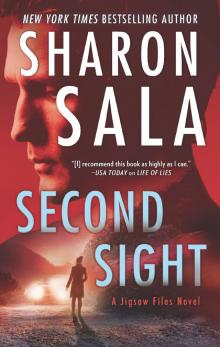 Second Sight
Second Sight Count Your Blessings
Count Your Blessings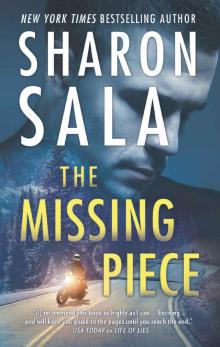 The Missing Piece (The Jigsaw Files)
The Missing Piece (The Jigsaw Files) Bloodlines
Bloodlines Sudden Danger
Sudden Danger King's Ransom
King's Ransom Once in a Blue Moon
Once in a Blue Moon A Rainbow Above Us
A Rainbow Above Us Always a Lady
Always a Lady Touchstone
Touchstone The Whippoorwill Trilogy
The Whippoorwill Trilogy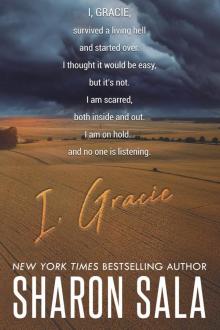 I, Gracie
I, Gracie Honor's Promise
Honor's Promise Rider on Fire
Rider on Fire The Gathering
The Gathering Don't Cry for Me
Don't Cry for Me The Way Back to You
The Way Back to You Swept Aside
Swept Aside Blood Stains
Blood Stains Chance McCall
Chance McCall Out of the Dark
Out of the Dark For Her Eyes Only
For Her Eyes Only 'Til Death (A Rebel Ridge Novel)
'Til Death (A Rebel Ridge Novel) Roman's Heart
Roman's Heart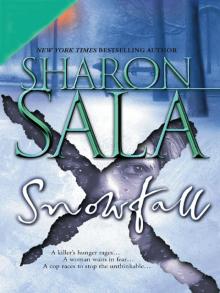 Snowfall
Snowfall Dark Hearts
Dark Hearts Mission: Irresistible
Mission: Irresistible A Place to Call Home
A Place to Call Home Betrayed
Betrayed The Lunatic Detective
The Lunatic Detective The Dove
The Dove Windwalker
Windwalker The Miracle Man
The Miracle Man The Curl Up and Dye
The Curl Up and Dye Familiar Stranger
Familiar Stranger Sweet Baby
Sweet Baby The Boarding House
The Boarding House Bad Penny
Bad Penny Remember Me
Remember Me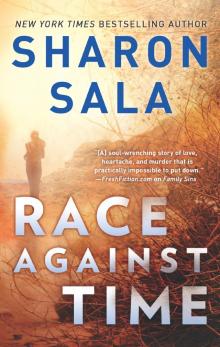 Race Against Time
Race Against Time The Dove (Prophecy Series)
The Dove (Prophecy Series)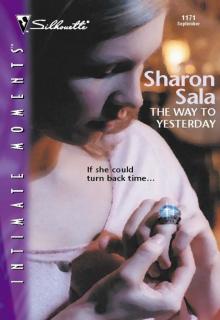 The Way to Yesterday
The Way to Yesterday The Healer
The Healer The Color of Love
The Color of Love Missing
Missing Next of Kin
Next of Kin A Field of Poppies
A Field of Poppies Cold Hearts
Cold Hearts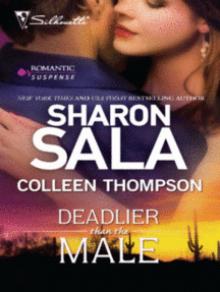 Deadlier than the Male
Deadlier than the Male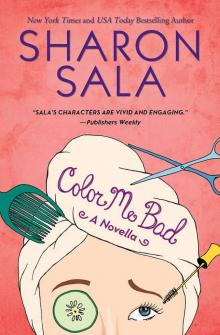 Color Me Bad: A Novella
Color Me Bad: A Novella Lunatic Times Two: 4 (The Lunatic Life Series)
Lunatic Times Two: 4 (The Lunatic Life Series)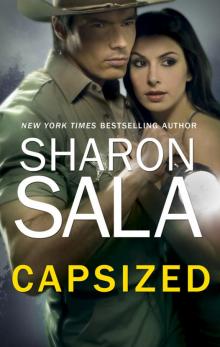 Capsized
Capsized Sympathy Pains
Sympathy Pains ROYAL'S CHILD
ROYAL'S CHILD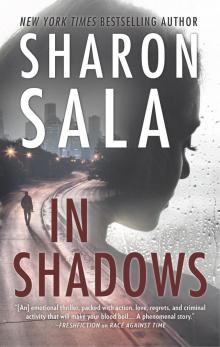 In Shadows
In Shadows 3, 2, 1...Married!
3, 2, 1...Married! Family Sins
Family Sins The Chosen
The Chosen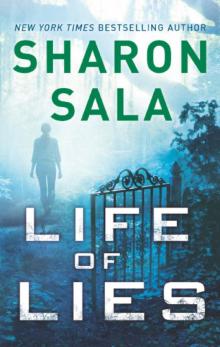 Life of Lies
Life of Lies Lunatic Revenge
Lunatic Revenge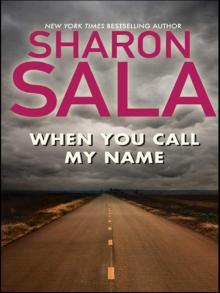 When You Call My Name
When You Call My Name I'll Stand By You
I'll Stand By You Saving Jake
Saving Jake Going Gone
Going Gone ANNIE AND THE OUTLAW
ANNIE AND THE OUTLAW Butterfly
Butterfly Cut Throat
Cut Throat Ryder's Wife
Ryder's Wife The Hen House
The Hen House Amber by Night
Amber by Night The Amen Trail
The Amen Trail Mimosa Grove
Mimosa Grove Dark Water
Dark Water Wild Hearts
Wild Hearts Blood Trails
Blood Trails The Warrior
The Warrior Shades of a Desperado
Shades of a Desperado Going Twice
Going Twice A Piece of My Heart
A Piece of My Heart You and Only You
You and Only You Nine Lives
Nine Lives Whippoorwill
Whippoorwill